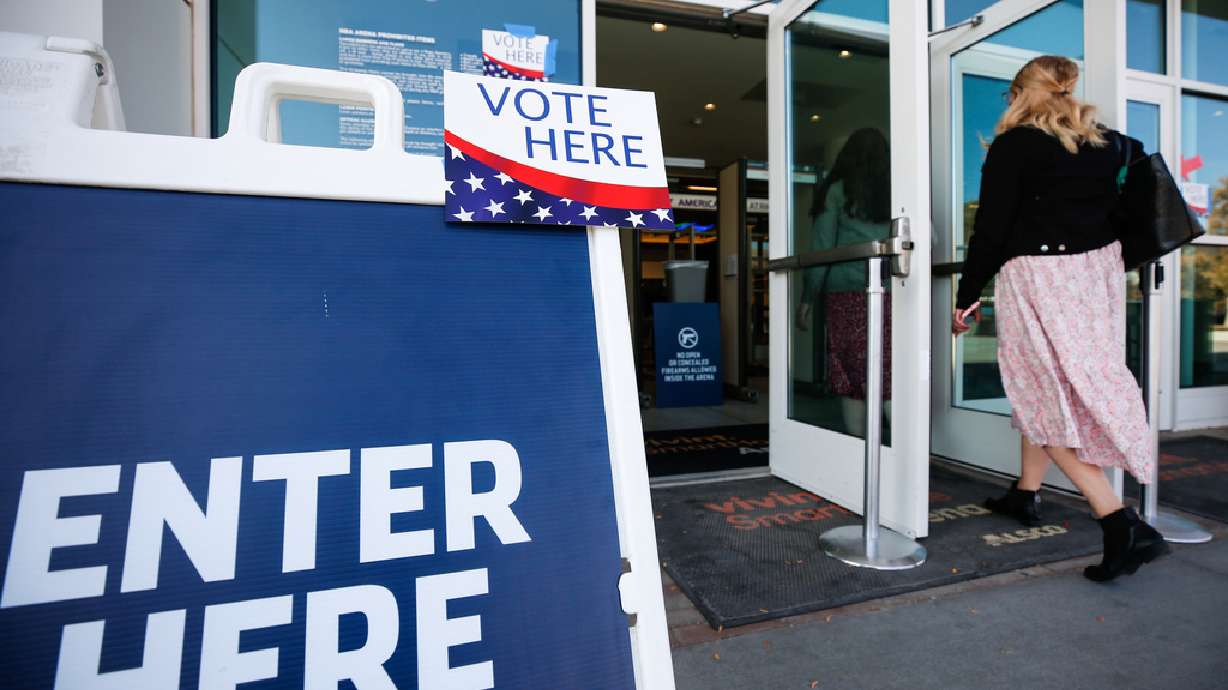Estimated read time: 4-5 minutes
This archived news story is available only for your personal, non-commercial use. Information in the story may be outdated or superseded by additional information. Reading or replaying the story in its archived form does not constitute a republication of the story.
SALT LAKE CITY — A bill that would extend the timeline for Utah's new redistricting committee to finalize the state's newest voting district maps cleared its first hurdles Friday.
HB413, sponsored by Rep. Paul Ray, R-Clearfield, was first numbered and publicly distributed Monday and passed through the House Government Operations Committee unanimously Friday morning. It was then passed by the House with another unanimous vote Friday afternoon.
The bill calls to push back current deadlines set in law as to when the state's redistricting committee needs to complete the newest redistricting maps.
"We need to correct that because they won't be able to hit their deadlines," Ray told the House committee.
The need became apparent earlier this month after the Census Bureau announced that it would deliver final census data to states "by Sept. 30" instead of its usual timeframe, which is March 31. Ray said Friday that it is expected to be delivered on Sept. 28, which is six months behind schedule.
The bureau has argued the extra time was needed to ensure accuracy as a result of issues tied to the COVID-19 pandemic. Officials stated on Feb.12 that data will also come in at once instead of "on a flow basis" like decades past.
But the delay poses a problem for Utah's seven-person committee redistricting committee. For instance, the current deadline for public meetings to be held on the matter is "no later than Aug. 1," which is now well before the data needed to draw the maps is expected to arrive. Under the proposed bill, that deadline would be moved back to Nov. 1.
The representative added that the commission would then have "no later than Nov. 15" to hand over redistricting maps for review from the Legislature. He also noted there would need to be legislative meetings on redistricting during the fall and there to be a special legislative session in December to ensure the maps can be finished.
The members of Utah's redistricting committee were announced earlier this year. The new commission format was first created by Proposition 4 in 2018, which called for an independent commission to draw maps to avoid gerrymandering.
Gov. Spencer Cox appointed Rex Facer, an associate professor of public management in the Romney Institute of Public Service and Ethics at BYU, to head the commission.
Other members, appointed by people of both majority and minority political parties, are Rep. Rob Bishop; former state senators Lyle Hillyard and Patricia Jones; former judges Christine Durham and Bill Throne; and geographic information systems specialist N. Jeffrey Baker.
(W)e a small problem in that the fundamental data that we need to do our task is not available.
–Rex Facer, chair of Utah's Independent Redistricting Commission
Facer, appearing in front of the committee Friday, said their task will be to redraw the congressional, legislative and state school board boundaries for the next decade; however, that's difficult to do without the census data.
"(W)e a small problem in that the fundamental data that we need to do our task is not available," he said, requesting that the legislature push the deadlines back to accommodate the issue that's out of their control.
"I think this is a relatively straightforward issue as Rep. Ray has said," he added.
Noah Rosenberg, executive director for Better Boundaries, which pushed forward Proposition 4 three years ago, spoke in favor of the bill during the meeting. He said the bill proposes "necessary changes."
The House Government Operations Committee agreed, voting 9-0 in favor of pushing the bill forward to a House vote. The House then voted 70-0 to approve it. It has a week to clear the Senate.
It's worth noting that Utah isn't alone in having to deal with the fallout of the census information delay. All 50 states use that information for redistricting. While Utah now has a bill to push back the redistricting map process, Ohio on Thursday became the first state to file a lawsuit over the delay.
The lawsuit, according to Reuters, calls for the Census Bureau to restore its original March 31 deadline for the data.
"The federal government has chosen to drag its feet by delaying the release of census data instead of following the law," Ohio Attorney General Dave Yost said in a statement.
"The people of Ohio have found ways to meet their responsibilities throughout the COVID-19 pandemic — adapting how we run businesses, caring for loved ones, home schooling children — why should the government create a double standard?"










